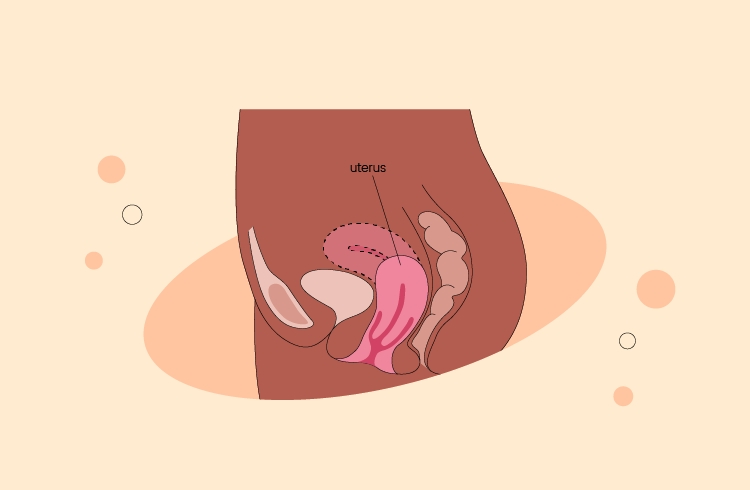We've gathered the most frequently asked questions from our users. In this article, we provide you with all the answers you need to know about inositol supplementation. Let's begin!
Benefits on Fertility
Q1: What is inositol, and how does it work for PCOS?
Inositol, a sugar alcohol, is found in foods and comes in forms like myo-inositol (MI) and d-chiro-inositol (DCI). It helps with PCOS in the following ways:
1. Improving Insulin Sensitivity:
Inositol may enhance insulin sensitivity, addressing insulin resistance common in PCOS and helping regulate hormones.
2. Regulating Ovulation:
Particularly myo-inositol may help restore normal ovulatory function, crucial for women with PCOS who often experience ovulatory dysfunction.
3. Reducing Androgen Levels:
Inositol may lower elevated androgen levels, potentially alleviating symptoms like hirsutism and acne.
4. Supporting Egg Quality:
Some studies suggest a positive impact on egg quality in women undergoing fertility treatments.
Q2: How does inositol improve female fertility?
Inositol, especially myo-inositol, may improve female fertility by regulating ovulation, improving insulin sensitivity, which positively impacts hormonal balance and ovarian function, lowering elevated androgen levels associated with conditions like PCOS, supporting Egg Quality, and aiding ART by enhancing outcomes in assisted reproductive technologies like IVF.
Q3: I've had my tubes tied. Can inositol help me get pregnant?
If you've had your tubes tied, inositol is unlikely to help you get pregnant. Tubal ligation is a permanent form of contraception, and the physical blockage of the fallopian tubes poses a significant barrier to conception. If you're considering pregnancy after tubal ligation, it's advisable to consult with a reproductive specialist to explore options like reversal surgery or assisted reproductive technologies such as IVF
Q4: I have endometriosis. Does inositol have any positive effects on it?
Researches suggest potential positive effects of inositol on endometriosis, including reducing inflammation and improving insulin sensitivity. However, more studies are needed, and individual responses vary. Consult a healthcare provider for personalized advice before considering inositol supplementation.
Q5: Can inositol help lower prolactin and LH levels?
Some studies suggest that inositol may have a positive effect in lowering prolactin and LH levels.
Q6: I have only one fallopian tube. Can inositol improve my chances of getting pregnant?
Yes. Inositol has a positive impact on fertility, potentially improving your chances of getting pregnant even with only one fallopian tube. However, it cannot guarantee an increase in fertility equivalent to those with two tubes.
Q7: I have irregular periods, and I'm 40. Will inositol help me get pregnant?
Inositol may help regulate menstrual cycles and improve fertility, but success varies among individuals. At 40, fertility naturally declines, so it's advisable to consult with a healthcare provider for personalized guidance on using inositol to enhance your chances of getting pregnant.
Q8: I had a miscarriage last month. Can inositol help me get pregnant again?
Yes. Inositol is thought to support fertility. It can enhance your chances of getting pregnant after a miscarriage by promoting the growth and release of healthy eggs.
Q9: I have Gestational diabetes, will this help?
Yes. Inositol, particularly myo-inositol, shows promise in improving insulin sensitivity, which could be beneficial for managing and preventing gestational diabetes.
Q10: What should I do to maximize my chances of pregnancy while taking inositol?
To maximize your chances of pregnancy while taking inositol:
- Use IVY103 Ovulation Prediction Kits (OPKs) to track LH surges.
- Track Basal Body Temperature (BBT) with basal body thermometer to identify ovulation.
- Monitor cervical mucus changes for fertility cues.
- Track your menstrual cycle with Femometer smart ring for women to predict ovulation.
- Have regular intercourse, especially during the fertile window.
- Maintain a healthy lifestyle with a balanced diet and regular exercise.
Q11: I'm 30s, and I didn't ovulate for one year. Will this help?
If you haven't ovulated for a year and are trying to conceive, consult with a healthcare provider first. Inositol, particularly myo-inositol, may be considered, especially if Polycystic Ovary Syndrome (PCOS) is a factor. Lifestyle changes and additional interventions may also be recommended based on your specific situation.
Q12: What hormone does inositol increase?
Inositol as a natural molecule that regulates hormones such as insulin, thyroid-stimulating hormone (TSH), and follicle-stimulating hormone (FSH).
Other Benefits
Q1: I feel anxious and can't sleep well at night, will it help?
Yes. Studies show that inositol may offer relief for anxiety and improved sleep.
Q2: Does inositol help lower blood sugar levels?
Yes, inositol, especially myo-inositol, is believed to help lower blood sugar levels by improving insulin sensitivity. If you have diabetes or take medications affecting blood sugar, consult your healthcare provider before taking.
Q3: Can inositol be beneficial for individuals with diabetes?
Inositol, especially myo-inositol, may help lower blood sugar levels and improve insulin sensitivity. Consult with a healthcare provider, particularly if managing diabetes.
Q4: Is there any connection between inositol and the treatment of acne?
Yes. Inositol, specifically myo-inositol, could be beneficial for managing acne, especially in conditions like PCOS.
Q5: Does inositol have potential in reducing abdominal fat?
Studies indicate that incorporating inositol alongside healthy lifestyle adjustments may contribute to weight loss and lower BMI, especially in individuals with PCOS and those under 30.
Q6: I'm suffering from menstrual cramps. Will it help?
Inositol might help alleviate menstrual cramps, especially in conditions like PCOS.
Q7: Does inositol help hair growth?
Some studies suggest a positive impact on hair growth, particularly in PCOS.
Q8: Does inositol lower cortisol levels?
Some studies suggest inositol has a positive impact on lowering cortisol levels. And in the meantime, have a healthy lifestyle is also important like maintaining a healthy diet, having regular exercises, spending time outdoors and having a good sleep.
Q9: Does inositol lower blood pressure?
Inositol shows promise in addressing metabolic disorders linked to high blood pressure, diabetes, and metabolic syndrome. These potential benefits may lead to an improvement in metabolic syndrome and a reduced risk of cardiovascular disease.
Q10: Can inositol be effective in managing symptoms of depression?
Research indicates that individuals with depression may have low levels of inositol in their brains. Some studies propose that supplementing with inositol could potentially balance crucial brain hormones like serotonin and dopamine. While more research is necessary, this approach might hold promise for alleviating depression symptoms.
Usage
Q1: Is it safe to inositol every day? How many shoud I take daily?
Inositol is safe to take daily and it is well-tolerated by most people. Take 3 capsules, daily, with food. You can take 3 capsules once a day or take 1 capsule for three times daily.
Q2: How long does it take to notice a difference?
Generally, it has been shown that inositol can take at least 3 months of regular supplementation to notice results. We recommend that supplementation be maintained as consistently as possible.
Q3: Can I take it with prenatal vitamins?
Yes. You can take inositol with prenatal vitamins. However, pay attention the supplement facts of prenatal vitamins to determine if they contain inositol. Be cautious not to exceed 18 grams of inositol daily to avoid potential discomfort. Always follow healthcare provider recommendations for supplement intake, especially during pregnancy.
Q4: Can I take it with other fertility boosting supplements?
It's advisable to avoid taking multiple fertility supplements simultaneously. If you find it necessary to take them together, consult your doctor beforehand for guidance.
Q5: I'm take medications for chronic diseases. Can I take it?
If you're on medications for chronic diseases, consult your healthcare provider before taking inositol or any new supplement to ensure compatibility and safety.
Q6: I've been taking it over 3 months and still not get pregnant, should I stop it?
It is suggested to track your ovulation while taking inositol to see if it can help with the improvement of ovulation. Also, it's important to discuss your fertility journey with a healthcare professional to ensure you receive personalized advice based on your specific circumstances.
Q7: Can I mix it with food or take it without capsules?
Yes. You can mix it in a 250ml glass of water or juice and drink it. However, we recommend taking it in capsule form to enhance its effectiveness.
Q8: What is the most common side effect of inositol?
It is well-tolerated by most people and much safer than metformin. Only mild side effects in daily doses up to 18 grams per day or higher. The most common side effects include diarrhea, nausea, abdominal pain, fatigue, headache, and dizziness.
Q9: I got pregnant, should I continue taking it or stop?
Inositol is safe to take during pregnancy at a dose of 4 grams per day. It can help reduce the risk of diabetes during pregnancy. If you are taking other pills or supplements at the same time, please consult a doctor before taking.
Q10: When should I have sex with my partner after taking it?
Have intercourse during your fertile window to increase your chances of pregnancy. Use a basal thermometer to track ovulation and predict your next fertile period.
Q11: Should I take it during periods?
Yes, it is generally safe to take inositol during your period as it may help alleviate symptoms like bloating and mood swings. However, if you have specific menstrual health concerns or medical conditions, it's advisable to consult a doctor before using inositol or any supplements.
Q12: Will inositol causes heavy period?
Inositol is not typically known to cause heavy periods. In fact, some research suggests that inositol may help regulate menstrual cycles and reduce symptoms of conditions like polycystic ovary syndrome (PCOS) or premenstrual syndrome (PMS), which can include heavy periods for some individuals.
Q13: Is it better to take inositol in the morning or night?
Inositol is water-soluble, eliminating the need to be taken with fat. It can be taken at any daytime, just before eating.
Q14: Is inositol safer than metformin?
Inositol is generally considered safe, with minimal side effects, while metformin, prescribed for diabetes, may have more pronounced side effects.
Q15: Who is not recommended to take inositol?
Women with low androgens shouldn't take myo-inositol.
Q16: Can I take inositol if I have stomach ulcers?
Inositol nicotinate turns into niacin in the body. Too much niacin can make stomach ulcers worse. Don't use inositol nicotinate if you have ulcers.
Manufacturing
Q1: Where are your supplements made? Do they meet manufacturing standards?
All products are produced in our US factories, located in Clearwater, FL and Hunter, NY. To ensure that every bottle of our supplements maintains our excellent standards, our plant's quality control department is committed to overseeing comprehensive manufacturing compliance that not only meets standards, but exceeds and surpasses regulatory requirements. Learn more about our standards
Q2: Is there any difference between your products and others?
Femometer Inositol offers a 40:1 ratio of Myo-inositol to D-chiro-inositol, making it a highly effective formula.
This article is the original creation of Femometer. All rights reserved by Femometer Inc. To reproduce, distribute, or reference the content, please reach out to us in advance to prevent any potential legal issues. Copyright © Femometer Inc.










